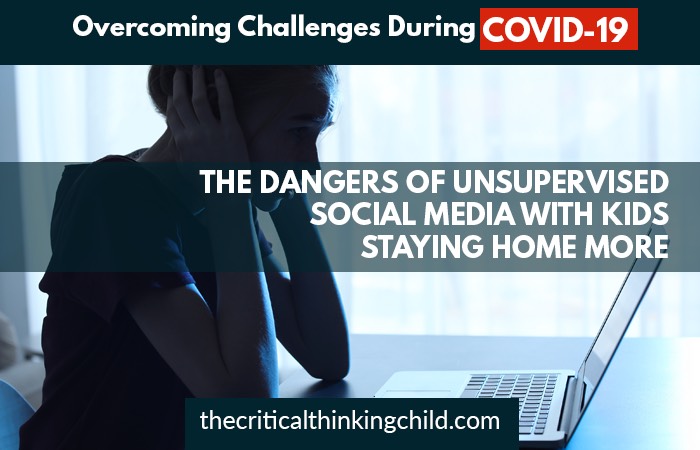With most schools closed due to the coronavirus outbreak, many parents and students are in uncharted territory. Kids are home all day without their normal routines and typical interactions with friends, which will likely result in increased time spent unsupervised on social media.
Not to mention, many grandparents, extended family members, or family friends are now taking care of kids while their parents are working, and may not be able to stay on top of everything the kids are doing.
On the other hand, many parents working from home may also not be able to adequately supervise their children, and other family members may be self-quarantined and unable to assist. In some cases, older students may be at home alone while their parents are at work and may even be supervising their younger siblings.
Some private schools have asked kids to log on in uniform and stick to a full-day remote learning schedule like the one below:
| 8.30 am – 8.40 am | Morning assembly | Click for Zoom login |
| 8.40 am – 9.40 am | English/Language Arts | Click for Zoom login |
| 9.40 – 10.10 | Snack/bathroom break | Offline |
| 10.10 – 11.10 | Math | Click for Zoom login |
| 11.10 – 11.30 | Spanish | Click for Zoom login |
| 11.30 – 12.30 | Lunch break | Offline |
| 12.30 – 1.15 | Music | Click for Zoom login |
| 1.15 -2.00 | Social Studies | Click for Zoom login |
| 2.00 – 2.40 | Science | Click for Zoom login |
In the absence of a tight schedule like this one, many parents and grandparents walk away for an hour or two (or more, if they are working remotely themselves) only to come back and find that no work has been completed, since students are left to do assignments without supervision. In addition, not having a schedule in place can lead to kids spending unsupervised time on social media, which can create safety concerns.
Below are some common problems as well as strategies to help maintain your child’s academic focus and ensure they are not using social media unsafely while they are at home.
The problem: No Work Is Getting Done
The solution: Put accountability measures in place. Even if your child’s school is not checking for work completion, you can check at home.
Make this routine manageable. For example, every morning, set a goal with your child, and then set a morning checkpoint and an afternoon checkpoint. If you’re having trouble motivating your child, you can offer a small reward or incentive like a sticker or extra TV time for work completion.
The Problem: Kids Are Talking to Strangers Online
The solution: Alongside your child, go through all their apps and make sure they are set to only interact with people your child knows (many accounts have “private” settings where nobody can see your child’s content unless they have pre-approved them as friends).
If you’re still concerned about this, you could institute a daily check at the end of the day where you check your child’s phone to make sure they’re only communicating with their actual friends.
The Problem: Students Are Using Apps You’re Unfamiliar With and May Be Accessing Content Without Your Knowledge
The solution: Use those parental controls for times your child is online without supervision. Many devices and networks have settings for app content to make sure kids aren’t viewing anything inappropriate. If some apps don’t have this option or you can’t figure out the parental control settings, set a rule that your child is only able to use apps and websites that you’ve previously approved.
The Problem: You’re Worried About Cybersecurity Issues
The solution: Keep talking to your kids about cyber safety.
We at The Critical Thinking Child have a series of books on cyber safety. The US Department of Education also has practical tips for ensuring unsupervised social media use doesn’t lead to cybersecurity problems.
Remind your child to not give out passwords and usernames to anyone for any reason. It’s also important to stay on top of your security software updates in order to protect everyone’s devices from viruses, scammers, and hackers.
Tackling the Problem of Unsupervised Social Media Use
In these confusing times of digital overwhelm and social distancing, know that you are not alone! Everyone is trying to figure out their new normal and making mistakes is part of this process.
If something slips by you, don’t beat yourself up. Instead, use it as a learning experience to help you and your child make the most of time spent at home—and do it safely and productively.



